



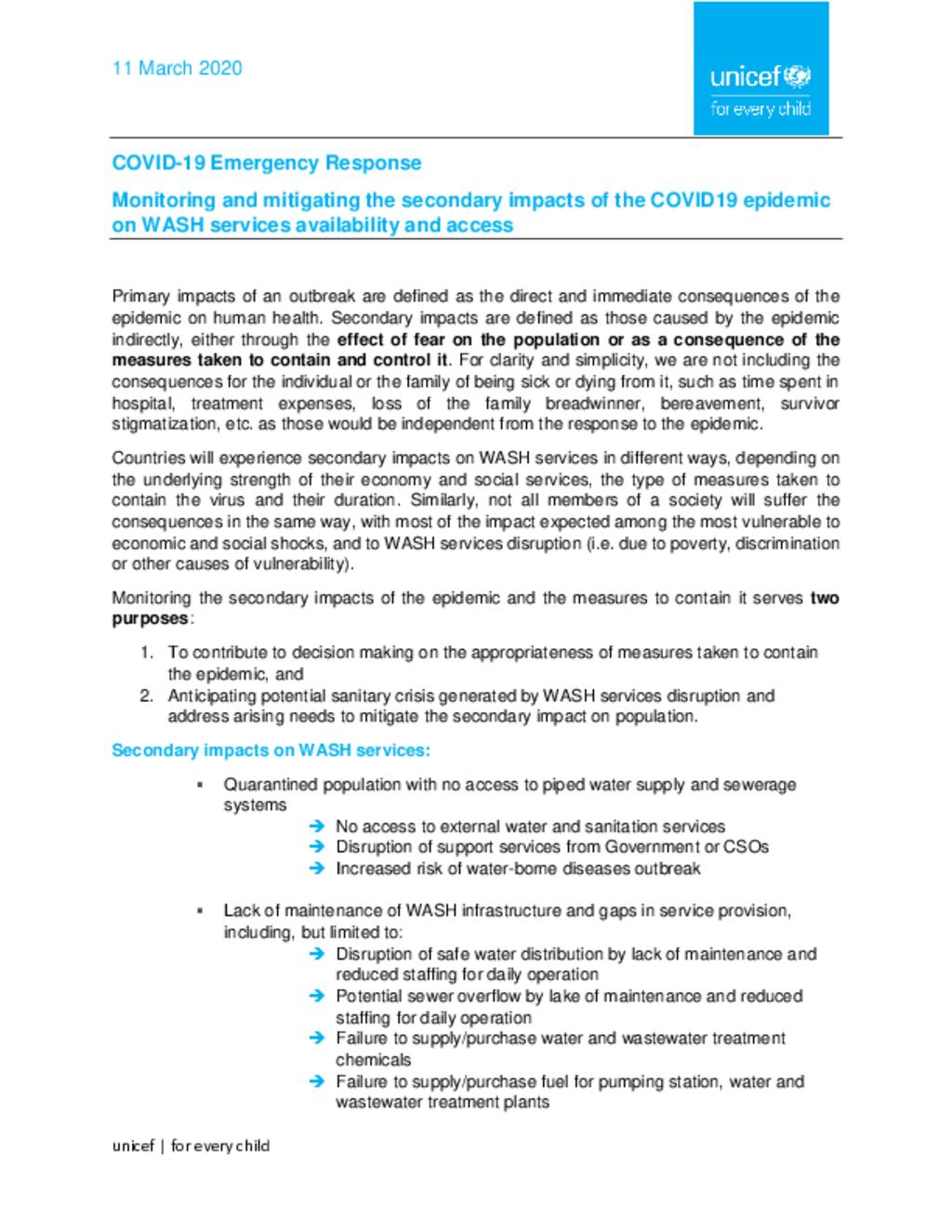 |
Monitoring and mitigating the secondary impacts of the COVID19 epidemic on WASH services availability and accessPrimary impacts of an outbreak are defined as the direct and immediate consequences of the epidemic on human health. Secondary impacts are defined as those caused by the epidemic indirectly, either through the effect of fear on the population or as a consequence of the measures taken to contain and control it. For clarity and simplicity, we are not including the consequences for the individual or the family of being sick or dying from it, such as time spent in hospital, treatment expenses, loss of the family breadwinner, bereavement, survivor stigmatization, etc. as those would be independent from the response to the epidemic. Countries will experience secondary impacts on WASH services in |
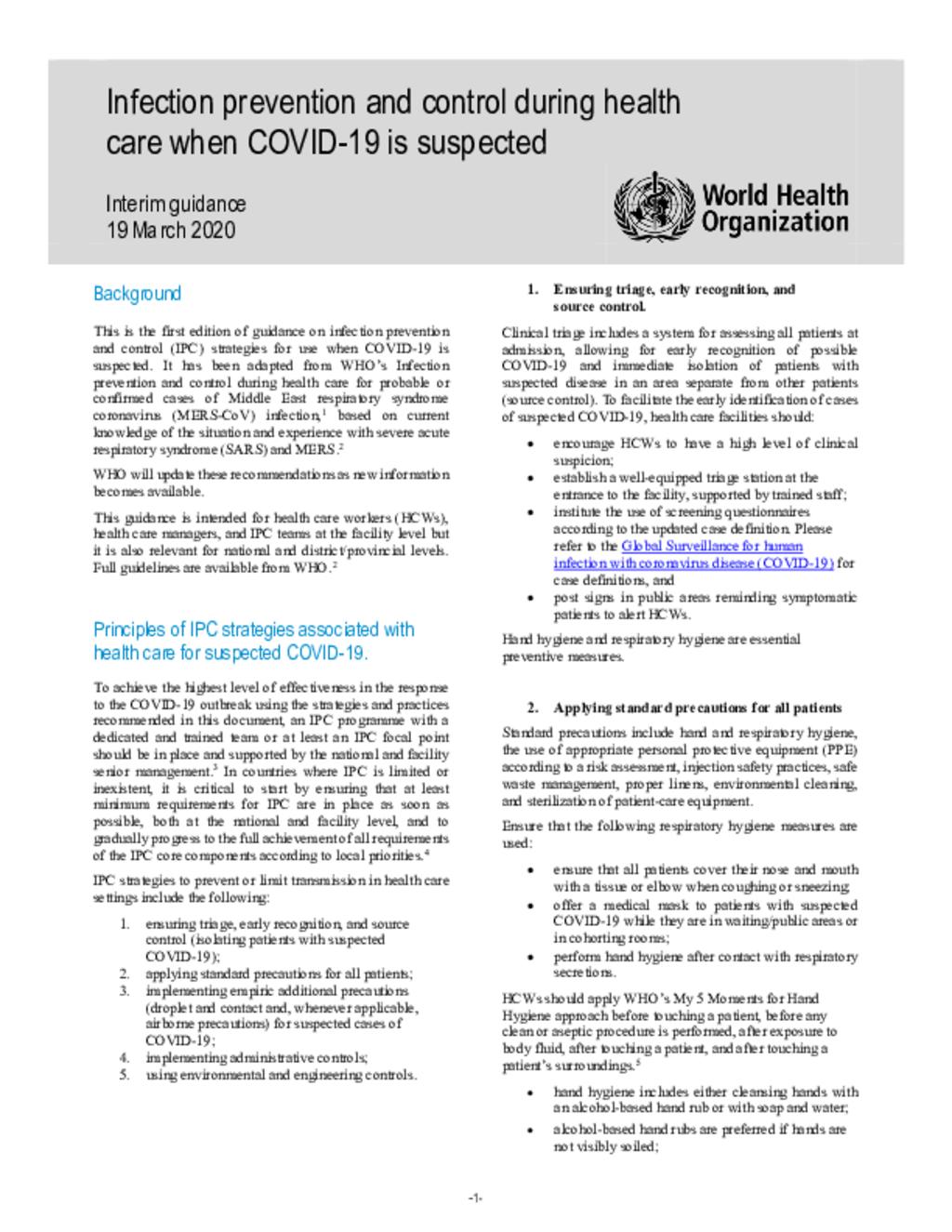 |
Infection Prevention and Control for the safe management of a dead body in the context of COVID-19This interim guidance is for all those, including managers of health care facilities and mortuaries, religious and public health authorities, and families, who tend to the bodies of persons who have died of suspected or confirmed COVID-19. These recommendations are subject to revision as new evidence becomes available. Please refer to the WHO website for updates on the virus and technical guidance. |
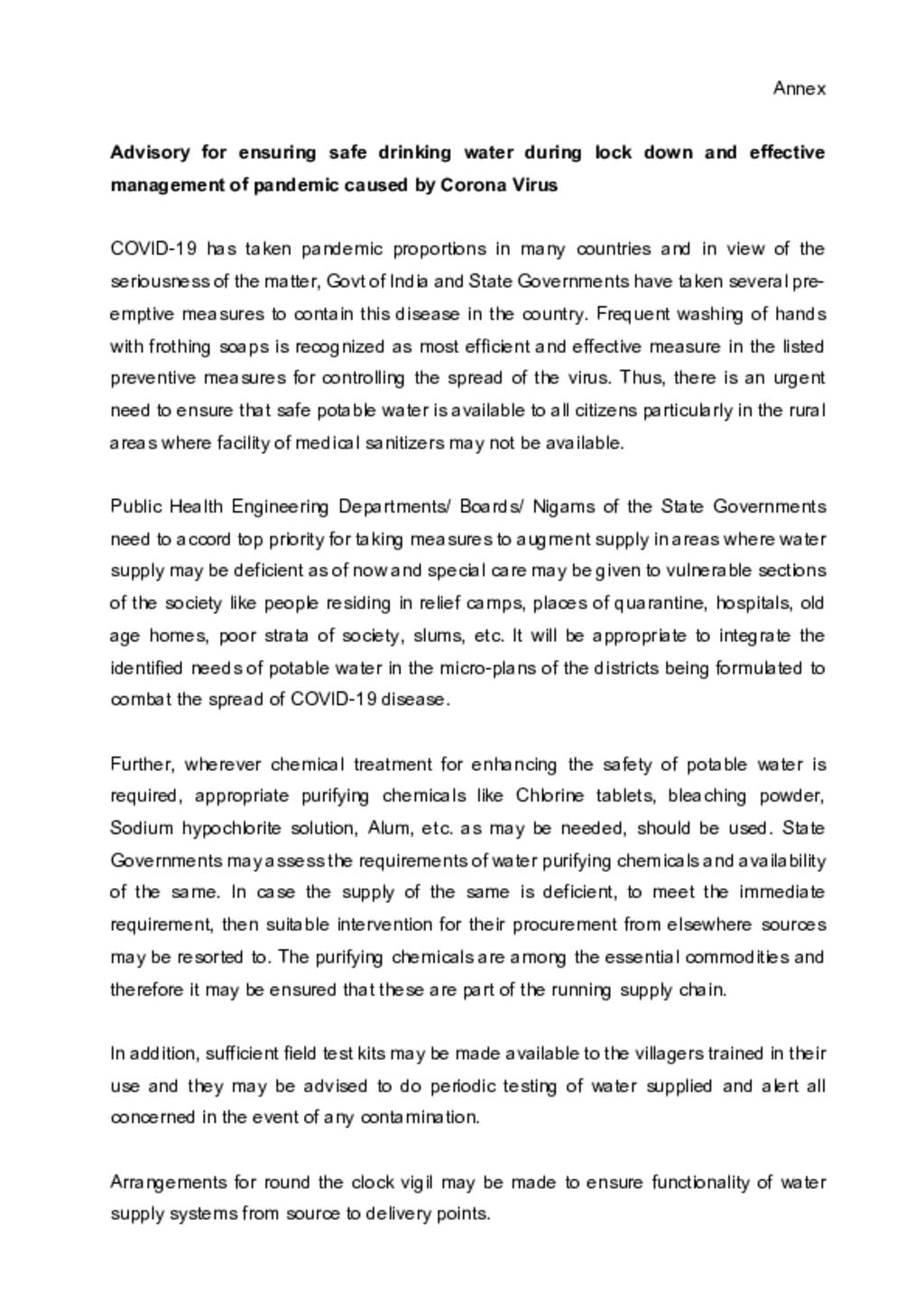 |
Advisory for ensuring safe drinking water during lock down and effective management of pandemic caused by Corona VirusCOVID-19 has taken pandemic proportions in many countries and in view of the seriousness of the matter, Govt of India and State Governments have taken several pre- emptive measures to contain this disease in the country. Frequent washing of hands with frothing soaps is recognized as most efficient and effective measure in the listed preventive measures for controlling the spread of the virus. Thus, there is an urgent need to ensure that safe potable water is available to all citizens particularly in the rural areas where facility of medical sanitizers may not be available. |
COVID-19 : The End of Global Sustainable Cities?The impact of COVID-19 has been felt across the globe in a wide range of countries and very different environments. The pandemic has already affected countries in every region, making this a truly global situation where every country must take steps to prepare and respond. Cities also play a central role in preparing for, mitigating and adapting to pandemics. In fact, many of the norms and rules for cities to manage infectious disease were first discussed at a global sanitary conference in 1851. Today, the preparedness of cities varies around the world. Their level of development and the socio-economic determinants of their populations play a big role. Cities with a high concentration of urban poor and deep inequalities are potentially more vulnerable than those that |
|
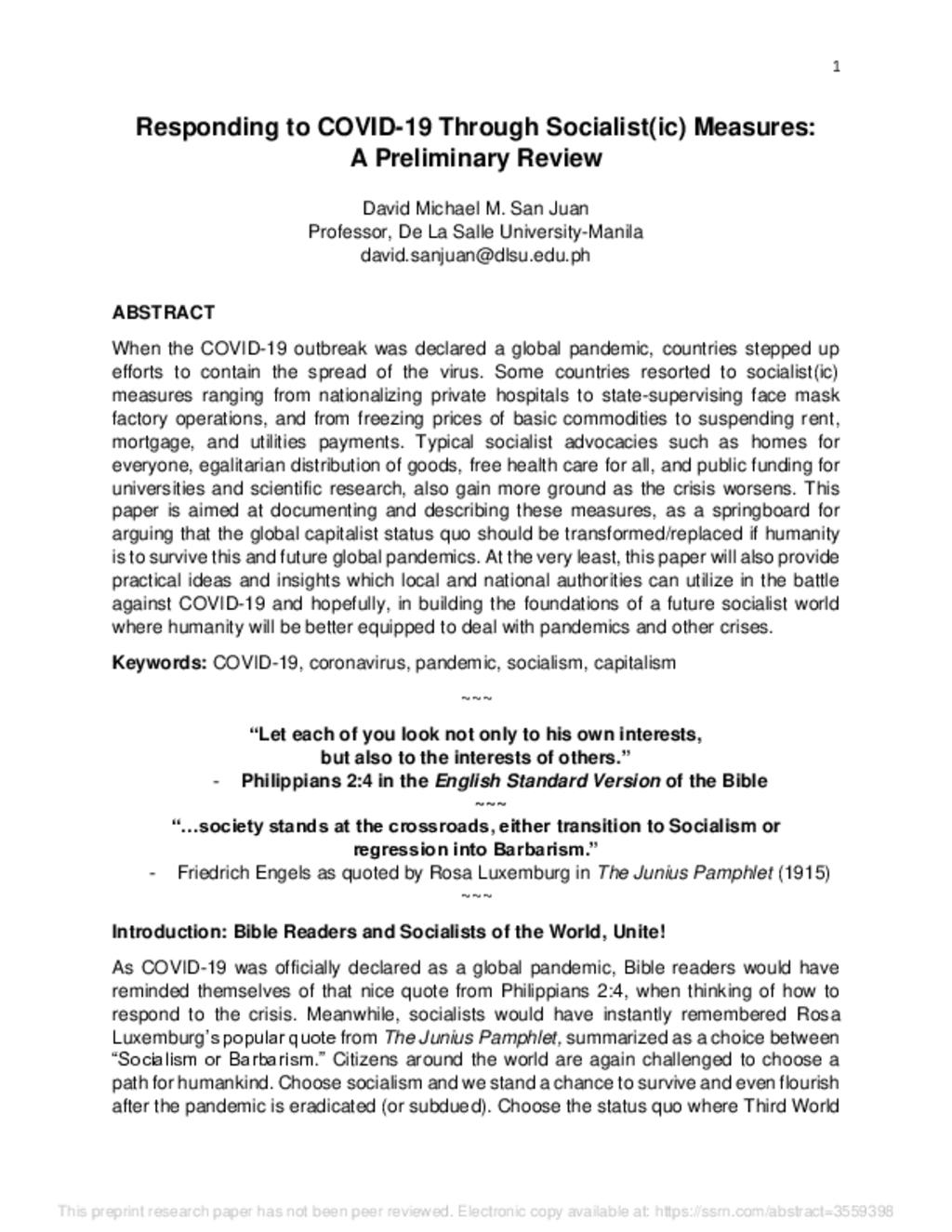 |
Responding to COVID-19 Through Socialist(ic) Measures: A Preliminary ReviewWhen the COVID-19 outbreak was declared a global pandemic, countries stepped up efforts to contain the spread of the virus. Some countries resorted to socialist(ic) measures ranging from nationalizing private hospitals to state-supervising face mask factory operations, and from freezing prices of basic commodities to suspending rent, mortgage, and utilities payments. Typical socialist advocacies such as homes for everyone, egalitarian distribution of goods, free health care for all, and public funding for universities and scientific research, also gain more ground as the crisis worsens. This paper is aimed at documenting and describing these measures, as a springboard for arguing that the global capitalist status quo should be transformed/ |
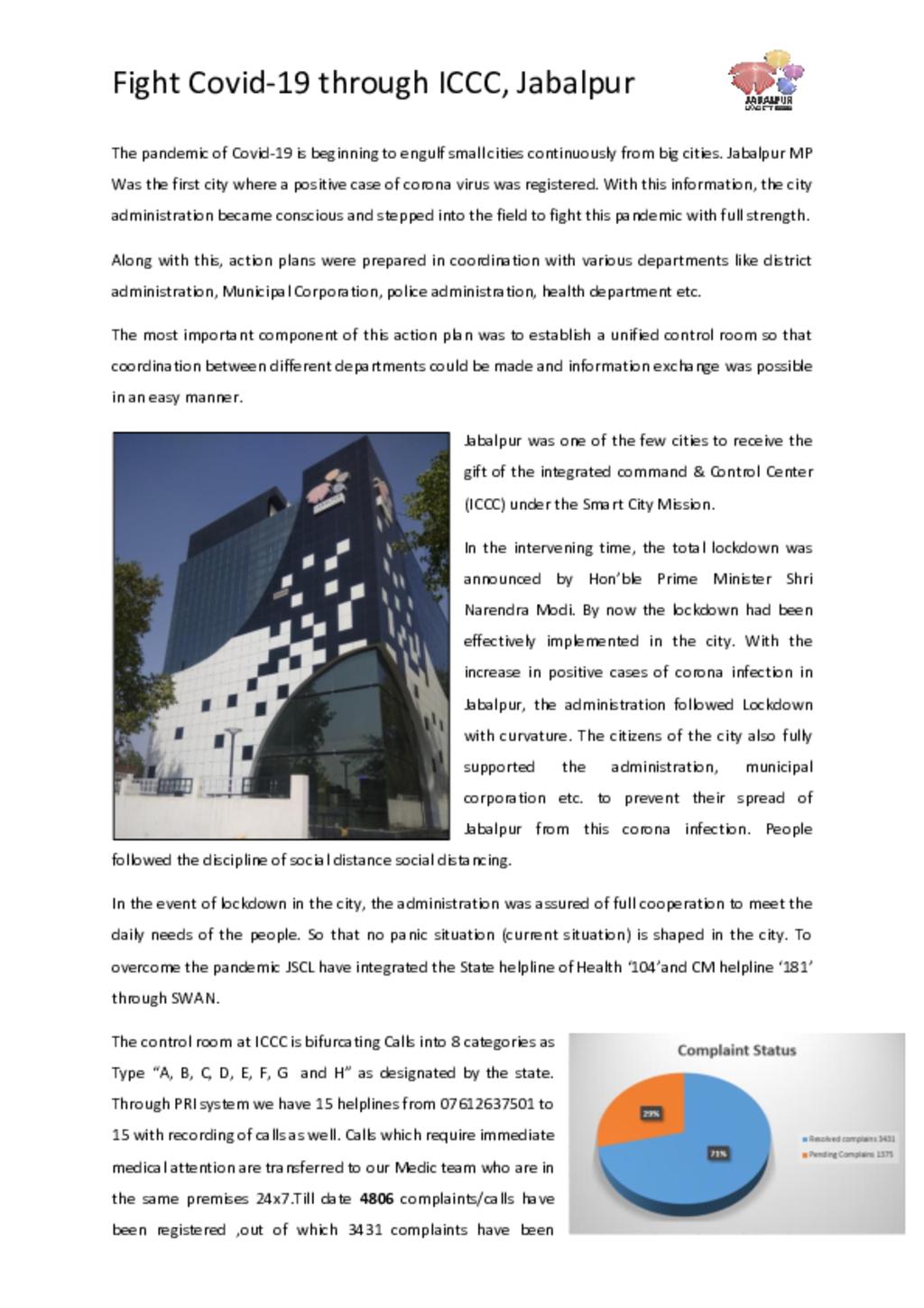 |
Fight Covid-19 through ICCC, JabalpurThe pandemic of Covid-19 is beginning to engulf small cities continuously from big cities. Jabalpur MP Was the first city where a positive case of corona virus was registered. With this information, the city administration became conscious and stepped into the field to fight this pandemic with full strength. Along with this, action plans were prepared in coordination with various departments like district administration, Municipal Corporation, police administration, health department etc. The most important component of this action plan was to establish a unified control room so that coordination between different departments could be made and information exchange was possible in an easy manner. |
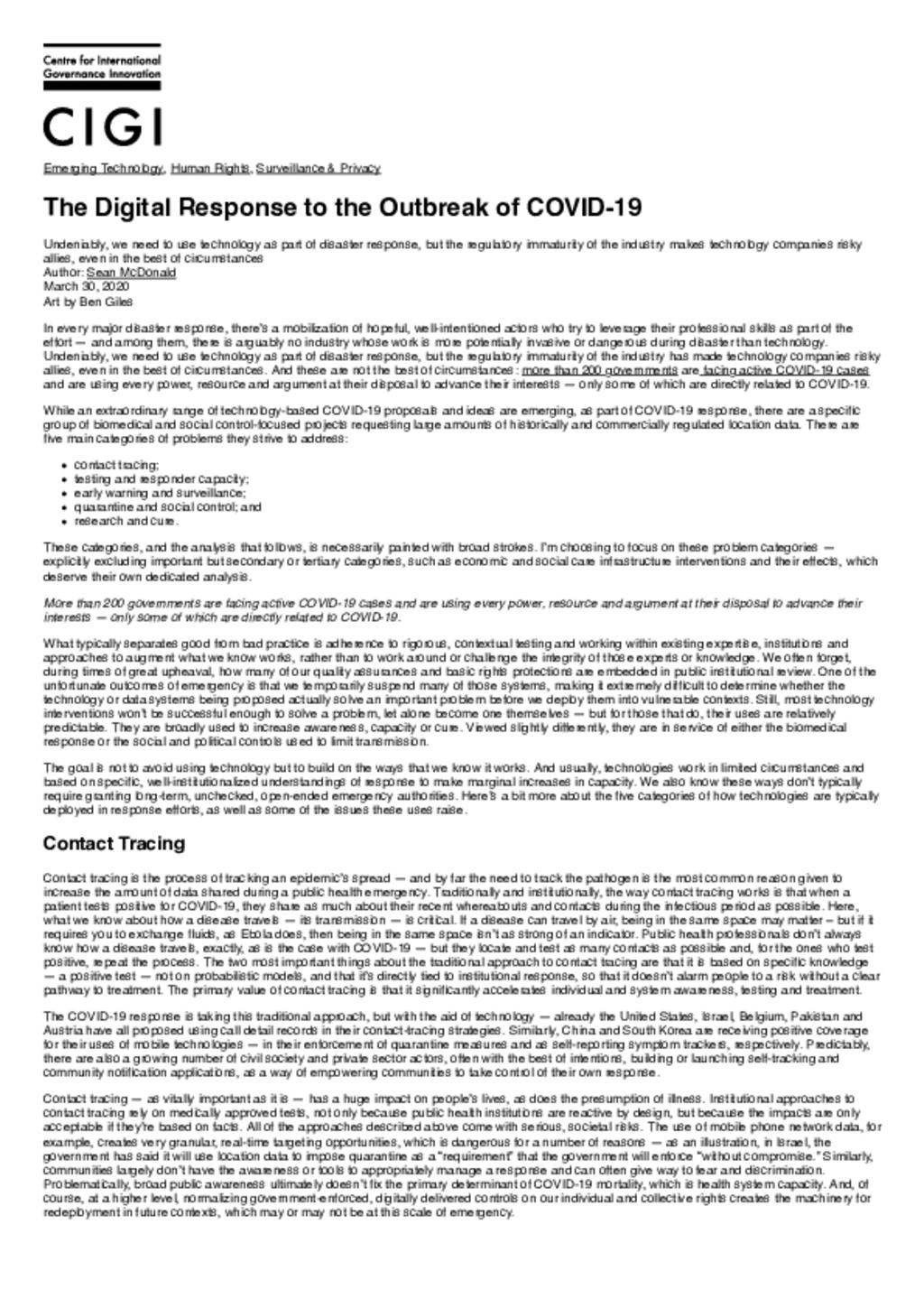 |
The Digital Response to the Outbreak of COVID-19Undeniably, we need to use technology as part of disaster response, but the regulatory immaturity of the industry makes technology companies risky allies, even in the best of circumstances. Link: https://www.cigionline.org/articles/digital-response-outbreak-covid-19 |
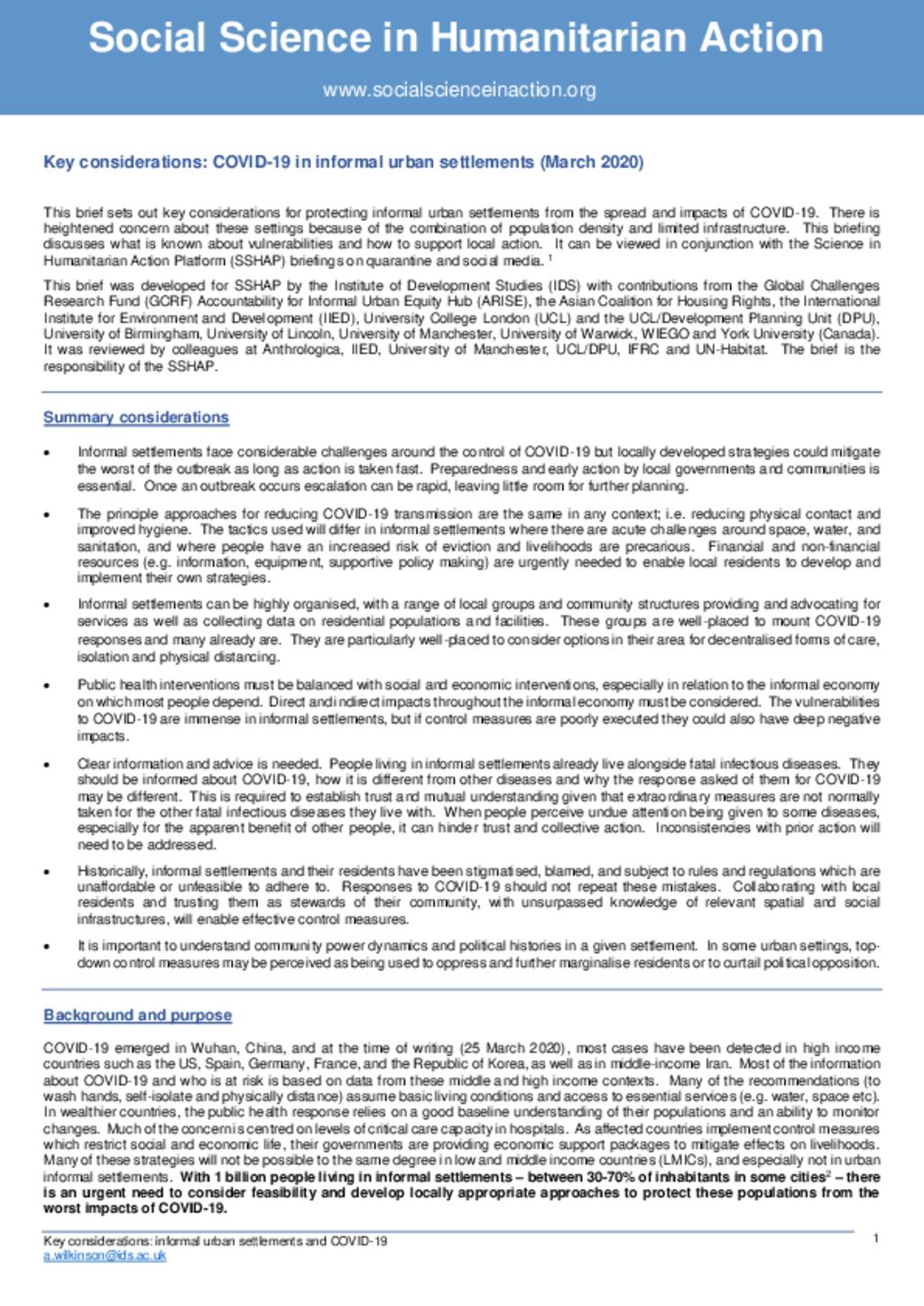 |
Key considerations: COVID-19 in informal urban settlements (March 2020)This brief sets out key considerations for protecting informal urban settlements from the spread and impacts of COVID-19. There is heightened concern about these settings because of the combination of population density and limited infrastructure. This briefing discusses what is known about vulnerabilities and how to support local action. It can be viewed in conjunction with the Science in Humanitarian Action Platform (SSHAP) briefings on quarantine and social media. This brief was developed for SSHAP by the Institute of Development Studies (IDS) with contributions from the Global Challenges Research Fund (GCRF) Accountability for Informal Urban Equity Hub (ARISE), the Asian Coalition for Housing Rights, the International Institute for |
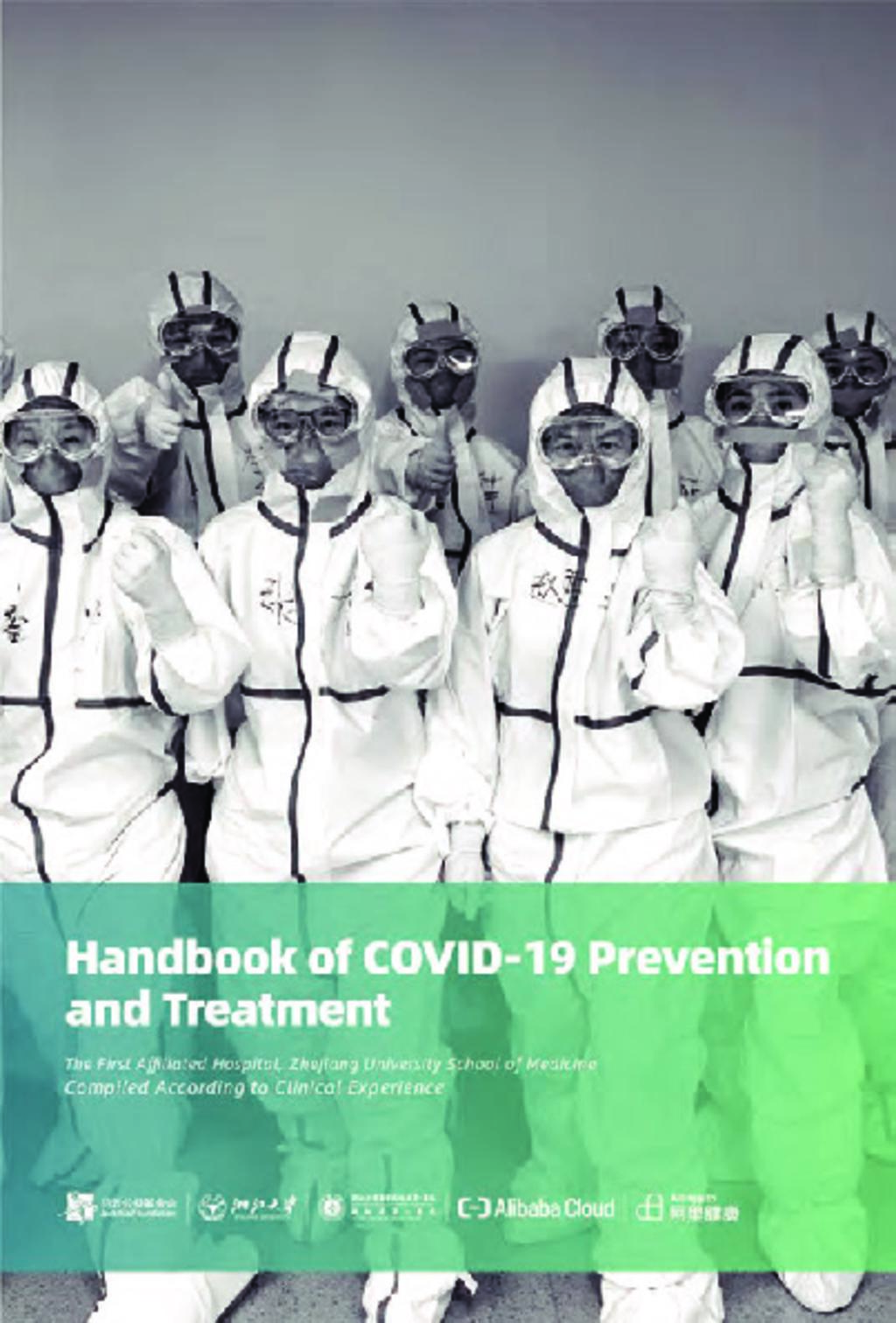 |
Handbook of COVID-19 Prevention and Treatment: Compiled According to Clinical ExperienceThis is an unprecedented global war, and mankind is facing the same enemy, the novel corona- virus. And the first battlefield is the hospital where our soldiers are the medical workers. To ensure that this war can be won, we must first make sure that our medical staff is guaranteed sufficient resources, including experience and technologies. Also, we need to make sure that the hospital is the battleground where we eliminate the virus, not where the virus defeats us. Therefore, Jack Ma Foundation and Alibaba Foundation have convened a group of medical experts who have just returned from the frontlines of fighting the pandemic. With the support of The First Affiliated Hospital, Zhejiang University School of Medicine |
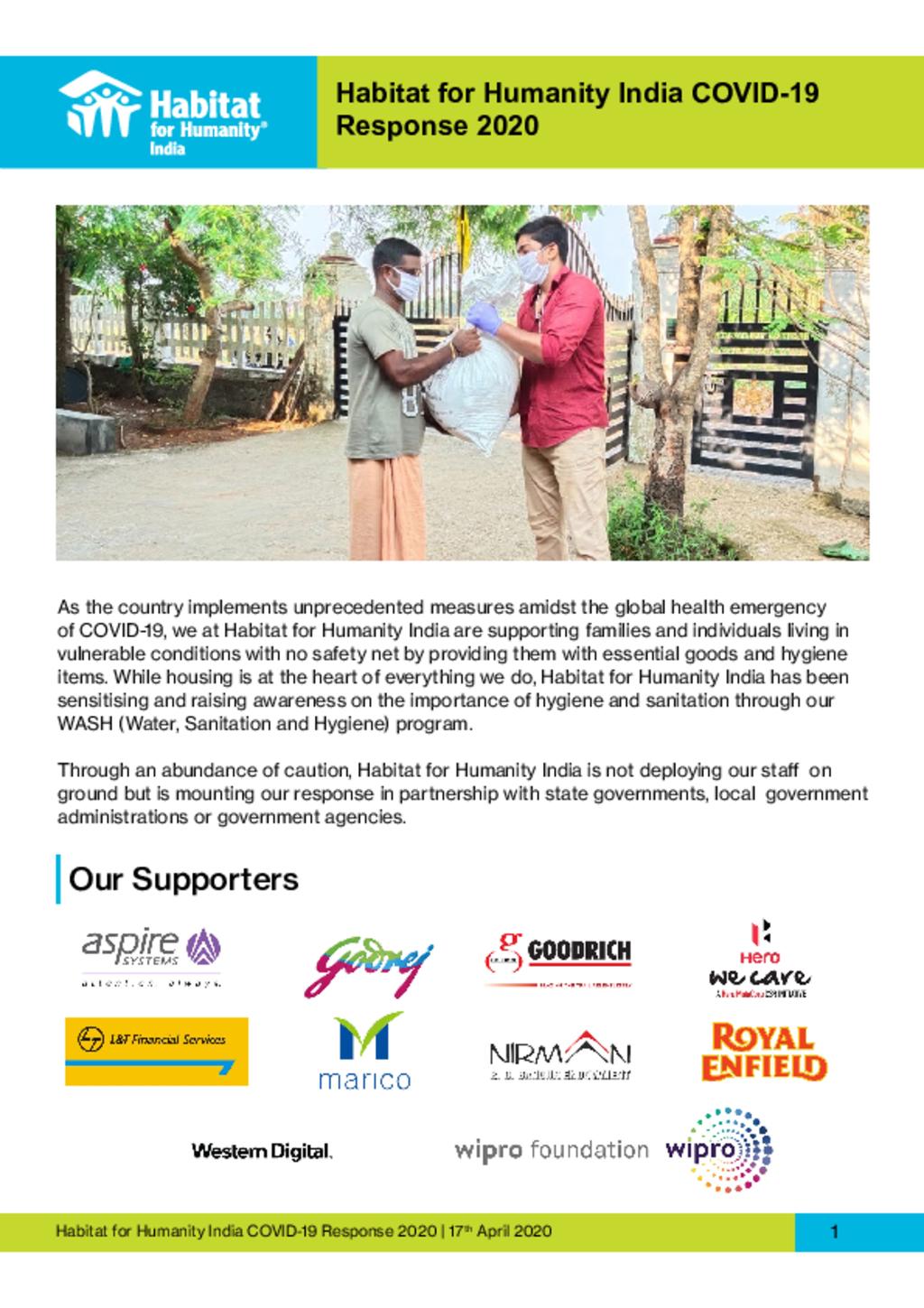 |
Habitat for Humanity India COVID-19 Response 2020As the country implements unprecedented measures amidst the global health emergency of COVID-19, Habitat for Humanity India is supporting families and individuals living in vulnerable conditions with no safety net by providing them with essential goods and hygiene items. While housing is at the heart of everything, Habitat for Humanity India has been sensitising and raising awareness on the importance of hygiene and sanitation through their WASH (Water, Sanitation and Hygiene) program. Through an abundance of caution, Habitat for Humanity India is not deploying their staff on ground but is mounting our response in partnership with state governments, local government administrations or government agencies. |